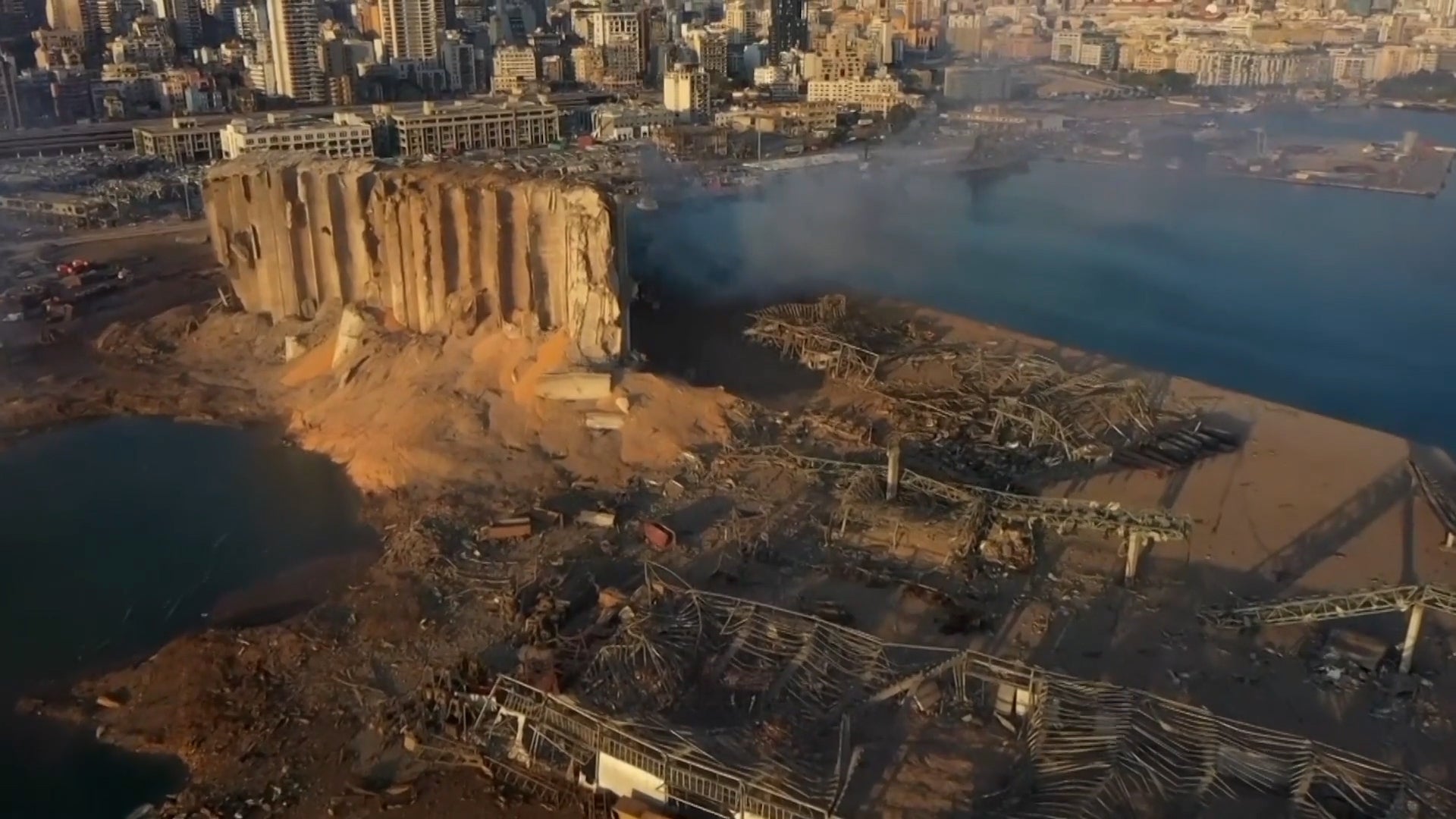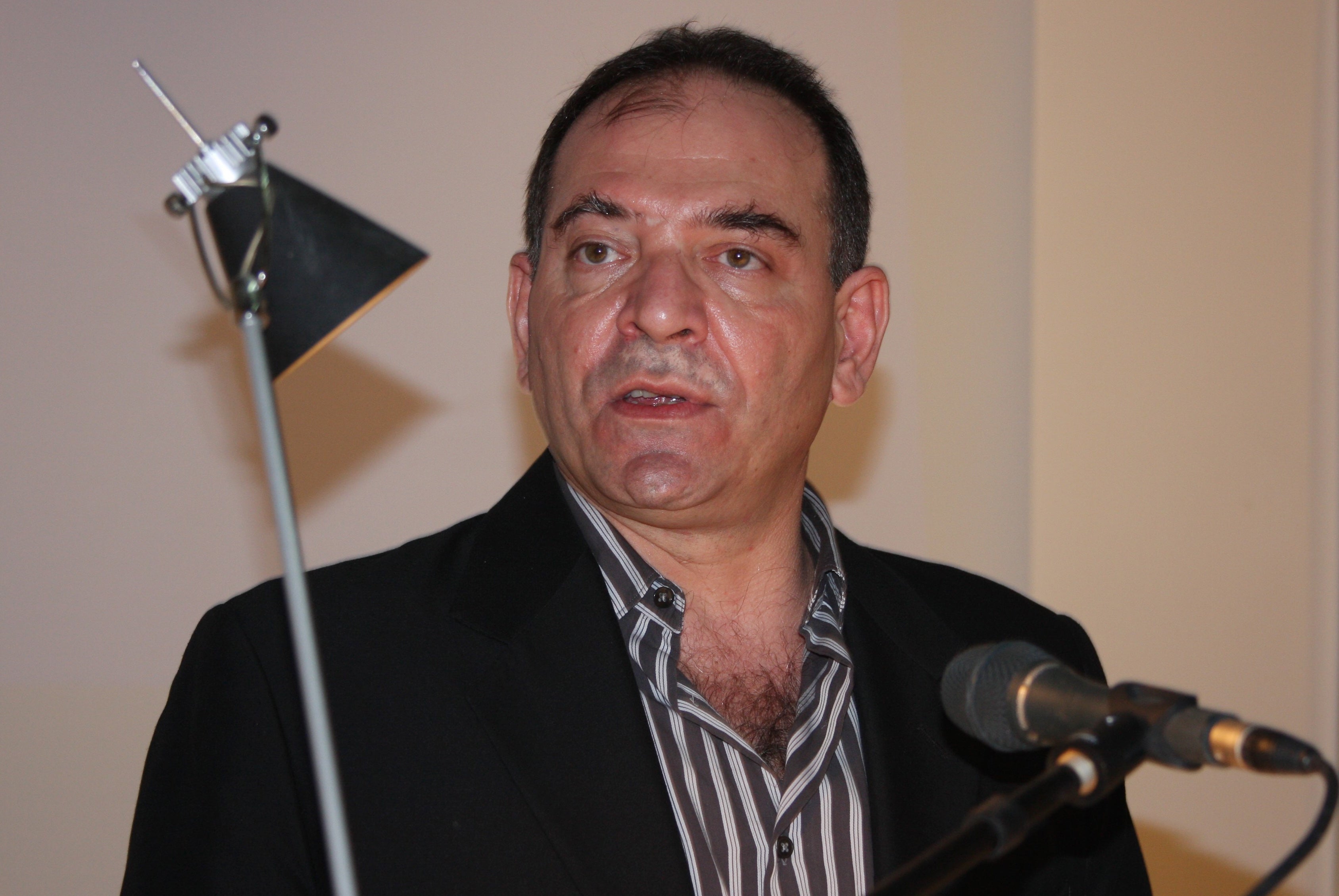Your support helps us to tell the story
This election is still a dead heat, according to most polls. In a fight with such wafer-thin margins, we need reporters on the ground talking to the people Trump and Harris are courting. Your support allows us to keep sending journalists to the story.
The Independent is trusted by 27 million Americans from across the entire political spectrum every month. Unlike many other quality news outlets, we choose not to lock you out of our reporting and analysis with paywalls. But quality journalism must still be paid for.
Help us keep bring these critical stories to light. Your support makes all the difference.
A prominent Lebanese publisher and vocal critic of armed group Hezbollah was shot dead in his car in southern Lebanon on Thursday in the first such killing of a high- profile activist in years. Lokman Slim, who ran a research centre, was found with four bullets in his head, back and chest, according to the coroner who inspected the body. Blood was splattered over the passenger car seat.
A security source said his phone was found on the side of a road away from the vehicle.
The news sparked mass uproar and calls from the United Nations, the European Union and the French ambassador for an independent investigation.
His family members first raised the alarm on Wednesday night when he disappeared shortly after visiting a poet friend in the south of the country, an area where Hezbollah and its allies dominate.
No one has claimed responsibility for the killing and the motive remains unclear. But his sister Rasha al-Ameer hinted he may have been murdered because he spoke out against what he described as the Iranian-backed, Shi'ite Muslim Hezbollah's intimidation tactics and attempts to monopolise Lebanese politics.
At his family home in Beirut's southern suburbs, where Hezbollah also holds sway, family members sat in shock.
"He was carrying the weight of this country on his shoulder," his sister Rasha told reporters adding that she has no faith in local investigations and that the family would carry out its own private forensic probe.
"Up until today in the history of Lebanon, all investigations have led to a dead end," she told reporters. His German wife Monika Borgmann called for an international probe.
Slim ran a research centre, made documentaries with his wife and led efforts to build an archive on Lebanon's 1975-1990 civil war.
Security forces found Slim's car on a rural road near the southern village of Addoussieh, in Sidon province.
A security official at the scene said Slim's ID, phone and gun were missing.
The killing took place exactly six months on from a devastating blast which blew up swathes of Beirut, killing 200 people and injuring thousands more.
In an interview last month on Saudi's al-Hadath TV, Slim said he believed Damascus and its ally Hezbollah had a role in the port blast.
Hezbollah has vehemently denied any links to the explosion.
Slim's criticism of Hezbollah has seen him face fierce backlash from its supporters, who called him "an embassy Shi'ite," accusing him of being a tool of the United States.
Washington, which classifies Hezbollah as terrorists, has ramped up sanctions against it to pressure Tehran.
He was also accused by his critics of sowing sedition, undermining national unity and being a Zionist because of his outspoken criticism.
Lebanon has a history of political crimes and violence. And so his killings have ignited fears of the return of violence and assassination amid a deepening political and financial crisis in the country.
Interior Minister Mohammad Fahmi, speaking to local TV station MTV, called it a "horrific crime." Caretaker Prime Minister Hassan Diab deplored the "heinous crime" and vowed a speedy investigation.

President Michel Aoun, a political ally of Hezbollah, said he had ordered an investigation into the crime.
The U.N. Special Coordinator for Lebanon Jan Kubis said he was "greatly disturbed by the tragic loss" of Slim, calling on the Lebanese authorities to carry out a speedy investigation.
"This investigation must not follow the pattern of the Beirut port blast investigation that 6 months on remains inconclusive and without accountability. People must know the truth," Kubis tweeted.
French ambassador Anne Grillo also called the killing an assassination, sending her condolences to the family in a tweet.
The UN’s humanitarian office for the region tweeted that they were “deeply troubled” and reiterated calls for a probe.
With additional reporting by agencies

Join our commenting forum
Join thought-provoking conversations, follow other Independent readers and see their replies
Comments